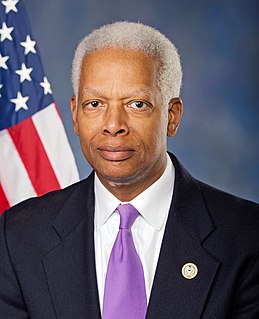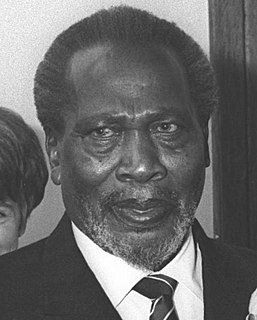A Quote by Uzodinma Iweala
Our racial past and future is something that we Americans must address.
Related Quotes
And we should forget, day by day, what we have done; this is true non-attachment. And we should do something new. To do something new, of course we must know our past, and this is alright. But we should not keep holding onto anything we have done; we should only reflect on it. And we must have some idea of what we should do in the future. But the future is the future, the past is the past; now we should work on something new.
It seems to me that the dedication of a library is an act of faith. To bring together the resources of the past and to house them in buildings where they will be preserved for the use of men and women in the future, a nation must believe in three things. It must believe in the past. it must believe in the future. It must, above all, believe in the capacity of its own people so to learn from the past that they can gain in judgment in creating their own future.
My top priority in any trade negotiation is expanding opportunity for hardworking Americans. It's no secret that past trade deals haven't always lived up to their promise, and that's why I will only sign my name to an agreement that helps ordinary Americans get ahead, the bill put forward today would help us write those rules in a way that avoids the mistakes from our past, seizes opportunities for our future and stays true to our values.
The glory of this land has been its capacity for transcending the moral evils of our past. For example, the long struggle of minority citizens for equal rights, once a source of disunity and civil war, is now a point of pride for all Americans. We must never go back. There is no room for racism, anti-Semitism, or other forms of ethnic and racial hatred in this country.
In the future, we've forgotten it. It's disappointing to find out that the past is the present is the future. Nobody wants that. And yet, that's what it is. Maybe it's a kind of surrealist move, to use language like "post-racial" - thinking that if you create the language for it, it will happen. I wish it worked that way. But that's not our reality.
There must be what Mr. Gladstone many years ago called a blessed act of oblivion. We must all turn our backs upon the horrors of the past. We must look to the future. We cannot afford to drag forward across the years that are to come the hatreds and revenges which have sprung from the injuries of the past.
The Past is dead, and has no resurrection; but the Future is endowed with such a life, that it lives to us even in anticipation. The Past is, in many things, the foe of mankind; the Future is, in all things, our friend. In the Past is no hope; The Future is both hope and fruition. The Past is the text-book of tyrants; the Future is the Bible of the Free. Those who are solely governed by the Past stand like Lot's wife, crystallized in the act of looking backward, and forever incapable of looking before.
Where there has been racial hatred, it must be ended. Where there has been tribal animosity, it will be finished. Let us not dwell upon the bitterness of the past. I would rather look to the future, to the good new Kenya, not to the bad old days. If we can create this sense of national direction and identity, we shall have gone a long way to solving our economic problems.
In a speech at the just-concluded G20 summit in London, President Obama urged Americans not to let their fears crimp their spending. It would be unwise, he argued, for Americans to let the fear of job loss, lack of savings, unpaid bills, credit card debt or student loans deter them from making major purchases. According to the president, 'we must spend now as an investment for the future'....instead of saving for the future, we must spend for the future.



































